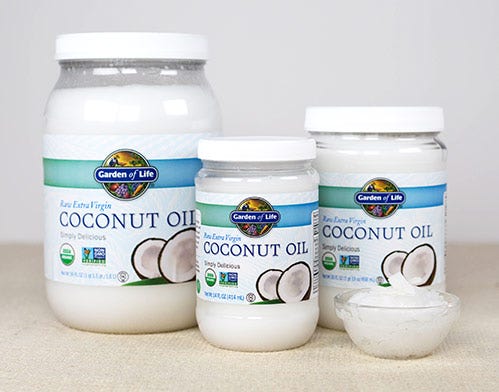Why CoQ10 Deserves A Place In Your Anti-Aging Routine
- 9/7/23


When it comes to skin health, anti-aging tops the list of concerns for most people. The skincare industry has answered the demand for more youthful skin with an overwhelming number of creams, serums, masks, and more. In fact, the anti-aging market brings in over $63 billion per year.
If topical products alone aren’t giving you the youthful results you’re looking for, it may be time to rethink your approach. While cosmetic treatments can improve the appearance of skin, they’re only one piece of the anti-aging puzzle.
Consuming a variety of nutritious foods is also important for great skin. Food supplies your body with the raw materials it needs to create healthy-looking skin from the inside out. One such ingredient is CoQ10, which is short for Coenzyme Q10. In this article, we’ll explain what CoQ10 is, the CoQ10 Skin benefits, and the best ways to make sure you’re getting enough to support skin health.
What is CoQ10?
CoQ10, also known as ubiquinone, is a compound found in every cell of your body. The cells of your heart, liver, muscles, and brain contain the highest concentrations of CoQ10, but it’s also present in skin cells.
Your cells need CoQ10 in order to make energy, also called ATP (adenosine triphosphate). Energy production occurs in your mitochondria—which are your cellular energy powerhouses—so CoQ10 also supports mitochondrial health.
CoQ10 is also an antioxidant that helps protect cells from oxidative stress and free radical damage. Oxidative stress can cause damage to cells that can interfere with normal functioning or lead to cell death.
Oxidative stress contributes to signs of aging skin, including wrinkles, loss of moisture, thinning, and sagging. CoQ10 has been studied for its ability to protect skin cells from damage and improve signs of aging.
CoQ10 Skin Benefits
Here are four ways CoQ10 can support skin health.
Support smoother-looking skin
Most studies focus on the topical use of CoQ10. However, one small study also associated oral CoQ10 supplementation with anti-aging skin benefits.
The 2017 study found middle-aged women who took 150 milligrams of CoQ10 per day had reductions in facial wrinkles and improved skin smoothness and firmness after 12 weeks of supplementation. This study also tested a dose of 50 milligrams of CoQ10 per day but did not observe the same wrinkle-reducing benefits with the smaller dose.
Support skin hydration
CoQ10 supplementation may also improve skin elasticity and moisture levels. The same 2017 study observed subjects who took CoQ10 retained more moisture in their skin during dry winter months compared to the placebo group.
Stimulates production of collagen and elastin
Collagen is a protein that provides structure and elasticity to the skin. Elastin is another skin protein that’s responsible for giving skin a full, plump appearance. Both proteins decrease with age and can be damaged by sunlight, environmental pollution, and poor diet. A 2022 lab study found treating skin cells with CoQ10 stimulates both collagen and elastin synthesis. Maintaining collagen and elastin levels is important for more youthful-looking skin.
Best Sources of CoQ10
Although your body produces much of the CoQ10 it needs, CoQ10 levels decrease with age. Taking certain medications, including cholesterol-lowering drugs, can also change the amount of CoQ10 your body makes. Luckily, you can support CoQ10 levels with food and/or dietary supplements.
Foods that are natural sources of CoQ10 include:
- Meat, including beef, poultry, and pork
- Organ meats, such as liver and kidney
- Fatty fish, such as salmon, sardines, herring, and tuna
- Nuts
- Legumes, including lentils and soybeans
- Vegetable oils, such as canola
Dairy products, vegetables, fruits, and some whole grains also contain small amounts of CoQ10, but not enough to make a big difference in levels in the body.
Even if you eat a varied diet, it’s estimated that food sources supply most individuals with 3 to 6 milligrams of CoQ10 per day — nowhere close to the amount used in studies on skin health and aging.
Taking a CoQ10 supplement can help replenish dwindling levels of CoQ10. Chat with your doctor before trying a CoQ10 supplement to make sure it’s the right choice for your needs.
Supplements are available in several forms, but if swallowing a pill isn’t your cup of tea, try CoQ10 in gummy form. Vitamin Code CoQ10 Gummies are a delicious strawberry flavor and are sugar-free. They contain 150 milligrams of CoQ10 per serving, plus clinically studied probiotics, to support healthy aging, heart health, and healthy digestion.
CoQ10 is a fat-soluble compound, which means it dissolves in fat. If you’re relying on food or supplement sources to support CoQ10 levels, you should make sure to pair CoQ10-containing foods and supplements with a source of healthy fat, such as nuts or avocado, to help boost your body’s ability to absorb and use CoQ10.
Takeaway
Aging is a natural process, but you can slow the appearance of aging skin and help protect against skin damage by supporting cellular health with a nutrient-rich diet, the proper supplements, and caring for your skin.
CoQ10 is a compound used by every cell in your body, including the skin, that protects cells from oxidative stress and free radical damage. The body makes less CoQ10 as you age, so including more foods that naturally contain CoQ10 and taking CoQ10 supplements, such as Vitamin Code CoQ10 Gummies, can help support skin health as you age.
References
-
Sood B, Keenaghan M. Coenzyme Q10. [Updated 2022 Jan 19]. In: StatPearls [Internet]. Treasure Island (FL): StatPearls Publishing; 2023 Jan.
-
Žmitek K, Pogačnik T, Mervic L, Žmitek J, Pravst I. The effect of dietary intake of coenzyme Q10 on skin parameters and condition: Results of a randomised, placebo-controlled, double-blind study. Biofactors. 2017;43(1):132-140. doi:10.1002/biof.1316
-
Mine Y, Takahashi T, Okamoto T. Stimulatory effects of collagen production induced by coenzyme Q10 in cultured skin fibroblasts. J Clin Biochem Nutr. 2022;71(1):29-33. doi:10.3164/jcbn.20-187
-
Pravst I, Zmitek K, Zmitek J. Coenzyme Q10 contents in foods and fortification strategies. Crit Rev Food Sci Nutr. 2010;50(4):269-280. doi:10.1080/10408390902773037




